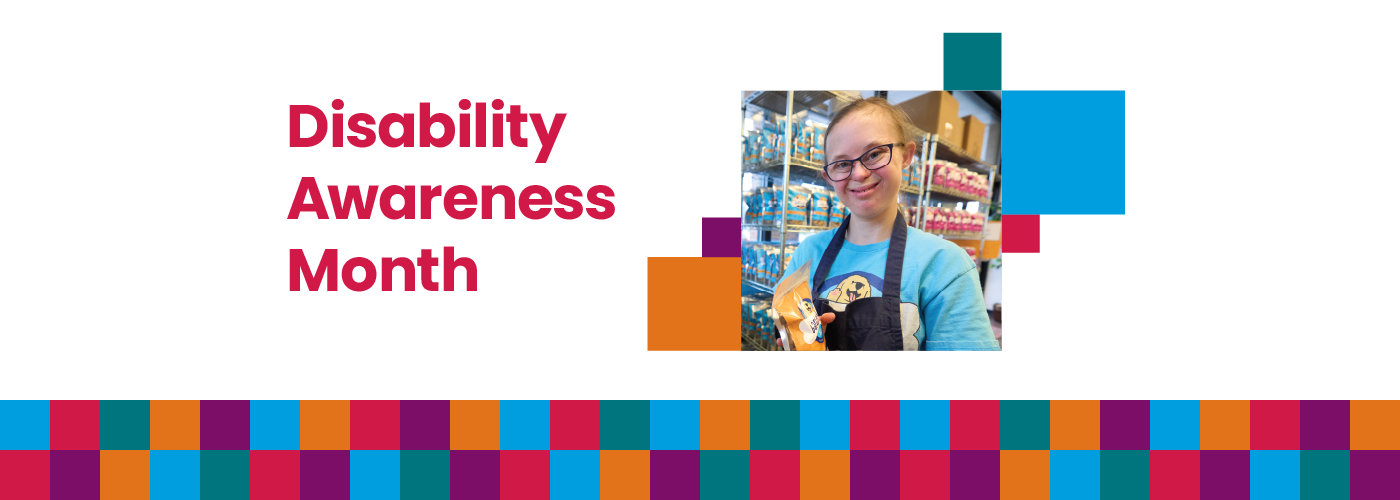Key Takeaways from The Hill's Disability Summit

In the United States, up to one in four adults have some type of disability, and over 60 percent of working-age people with disabilities in the U.S. do not have jobs.
The Americans with Disabilities Act (ADA), first signed into law in 1990, prohibits employment discrimination against individuals with disabilities. Three decades later, significant progress has been made but there is still work to be done.
SourceAmerica® sponsored The Hill’s Disability Summit, which brought together policymakers, and business and nonprofit leaders to discuss practical solutions to increase employment across the disability community and achieve employment for all. During the discussion, panelists emphasized four key focus areas when working on disability policy reform.
Expanding workplace efforts that promote fairness, access, and belonging to include disability community
Richard Belden, president and CEO of SourceAmerica, noted that organizations are healthier when the workforce is includes everyone. “I think there’s greater respect for all people and the studies have shown that a more welcoming organization is a more productive organization,” Belden said.
During the summit’s panel discussion, Increasing Employment Across the Disability Community, Day Al-Mohamed, director of disability policy for the White House Domestic Policy Council, discussed the government’s efforts to improve accessibility for people with disabilities in the workforce.
“The best example of where you’ll see things that the Domestic Policy Council will help drive would be in support of Executive Order 14035, on Diversity, Equity, Inclusion and Accessibility, which was created to cultivate a federal workforce that draws on the full diversity of a nation.” She continued, saying, “Over the last year individual agencies have crafted concrete plans to embed DEIA into their recruitment.”
Improving home care support
Rep. Debbie Dingell, D-Mich., spoke about her experience caring for her late husband, former Rep. John Dingell, D-Mich., and how it led her to become a true advocate of disability policy reform.
“I don’t think you realize how broken this system is until you have had to try to navigate it. And it’s made me a very loud spokesperson for this community,” Dingell said.
Dingell co-chairs the House Bipartisan Disabilities Caucus and stressed that Congress needs bipartisan support to pass legislation and kickstart initiatives to improve conditions for people with disabilities who lack care or other support. She added, “We don’t look at these issues as a Republican issue or a Democratic issue. These are issues that every family in this country or the world experience in some way.”
Armando Contreras, president and CEO of United Cerebral Palsy, underscored home healthcare workers’ issues, as Medicaid reimbursements are inadequate to support their wages.
“This wage disparity is affecting the quality of care provided to individuals with disabilities,” Armando added.
Providing better access to training and employment services
While discussing hiring practices and finding talent, Rhiannon Parker, chief innovation officer of The Valuable 500, stated that to start, companies should acknowledge that the ways of working or what has been done in the past may not be what works now.
“Organizations that are very clear and committed to reasonable adjustments and you know really making that available to everyone without a lot of admin or administrative burden on the individual, those are the ones that we're really seeing thrive and create an environment where they can recruit and retain talent.”
Parker also offered practical ways organizations can measure disability performance by looking at hiring and retention data, internal support networks, leadership training, setting disability-specific goals, and digital accessibility.
“It’s crucial to measure and manage progress in these areas,” Parker emphasized.
Supporting veterans with disabilities
Rep. Mike Bost, R-Ill., chairman of the Committee on Veterans Affairs, stressed that veterans often face difficulty in finding employment, particularly those with physical or mental disabilities. He said that he hopes to work to improve availability and education for veterans to access the benefits through the VA.
“They’re the best employees because they know the importance of showing up on time, seeing what their mission is, moving forward, and fixing and working on the mission that's in front of them, and doing it efficiently.”
To watch The Hill’s Disability Summit in its entirety, visit TheHill.com.